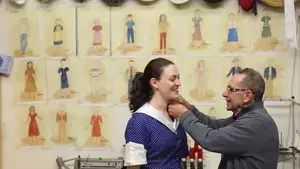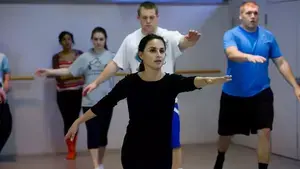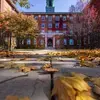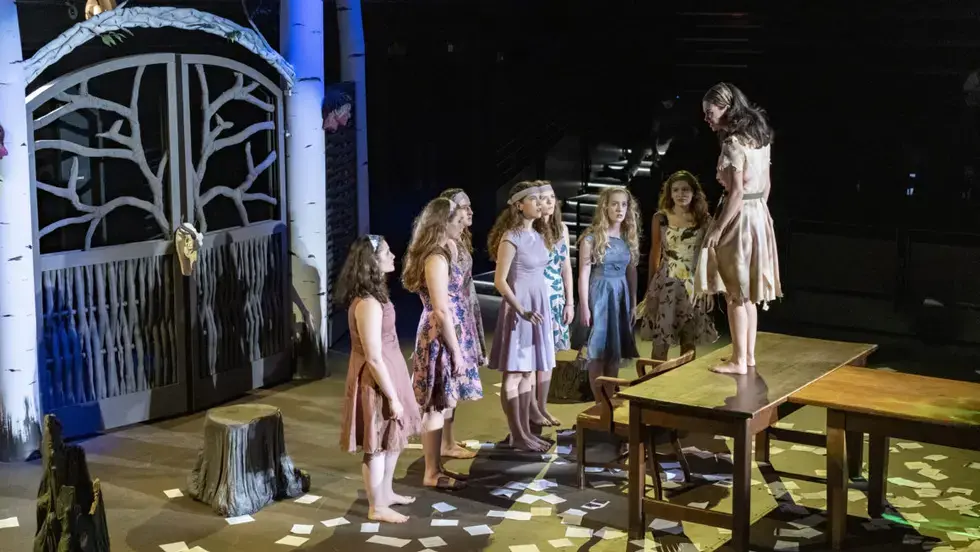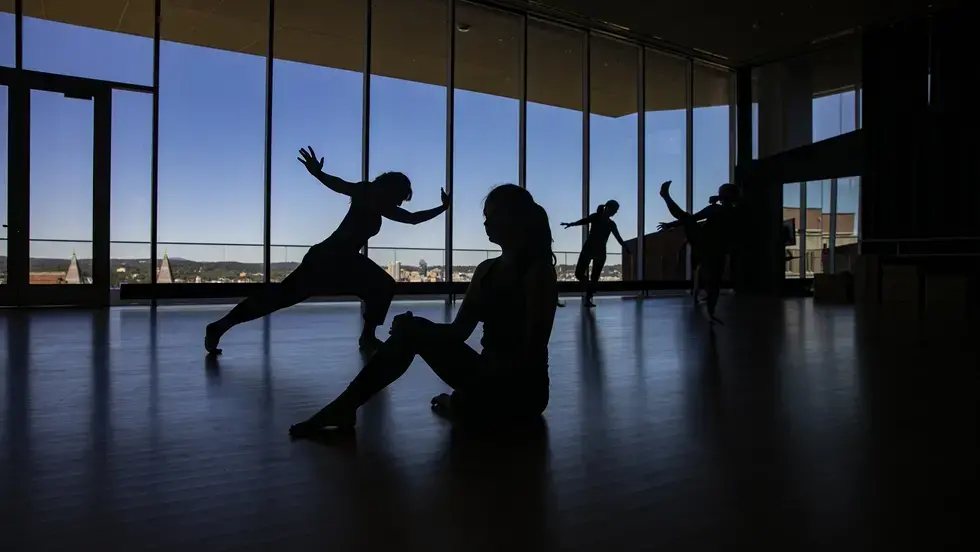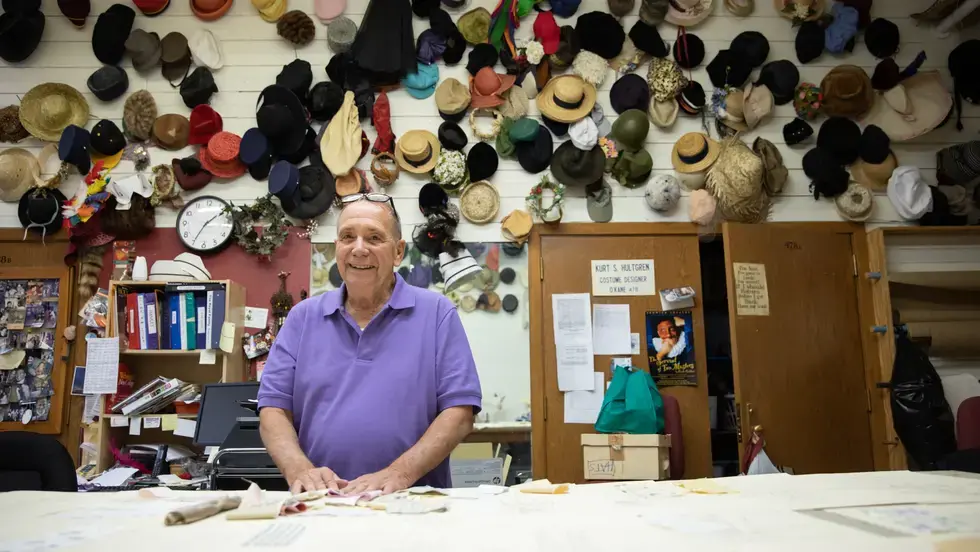
Theatre & Dance
Act, dance, direct, design or stage manage. With numerous production opportunities throughout the year, students studying theatre can try on many different hats — figuratively and literally.
Recognized for its high standards of training and the quality of its productions, the Department of Theatre & Dance at Holy Cross provides a nurturing and supportive environment for students to express themselves and develop their artistic capabilities in a collaborative environment.
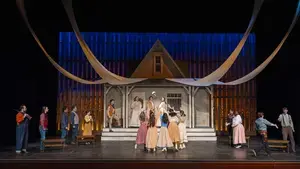
Why Study Theatre & Dance?
Theatre in some form has been a part of every culture and period in history, making it both a universal form of expression and an infinitely varied series of practices, each unique to its time and place. In the liberal arts tradition, Theatre is a vital, dynamic discipline in ongoing dialogue with the human condition. Holy Cross Theatre reflects Jesuit ideals such as discernment and cura personalis, as well as the College Mission’s call for comfort with ambiguity and uncertainty. In classrooms, studios, laboratories, shops, and performance spaces, Holy Cross Theatre seeks to entertain, provoke thought and creatively challenge both participants and audiences.
Courses of Study
Theatre: Major
Students interested in majoring in Theatre can choose either a Performance or Design emphasis. Students interested in minoring in Dance will complete six courses (see Dance Minor). Students can complete both a major in Theatre and a minor in Dance. Students can also create a self-designed major through the Center for Interdisciplinary Studies in areas such as Film Studies.
Dance: Minor
The Dance Program and Minor allows students to learn a wide range of styles, including Afro-Haitian, Contemporary, Ballet, Broadway, Hip-Hop/Breaking, Balinese, and Street Styles. Students interested in choreography have opportunities in both coursework and performance. Our dance courses are grounded in an evolving understanding of dance history, technique and composition. Students also have the opportunity to explore interdisciplinary collaborations between Dance and other areas of study.
Meet Your Department Chair

